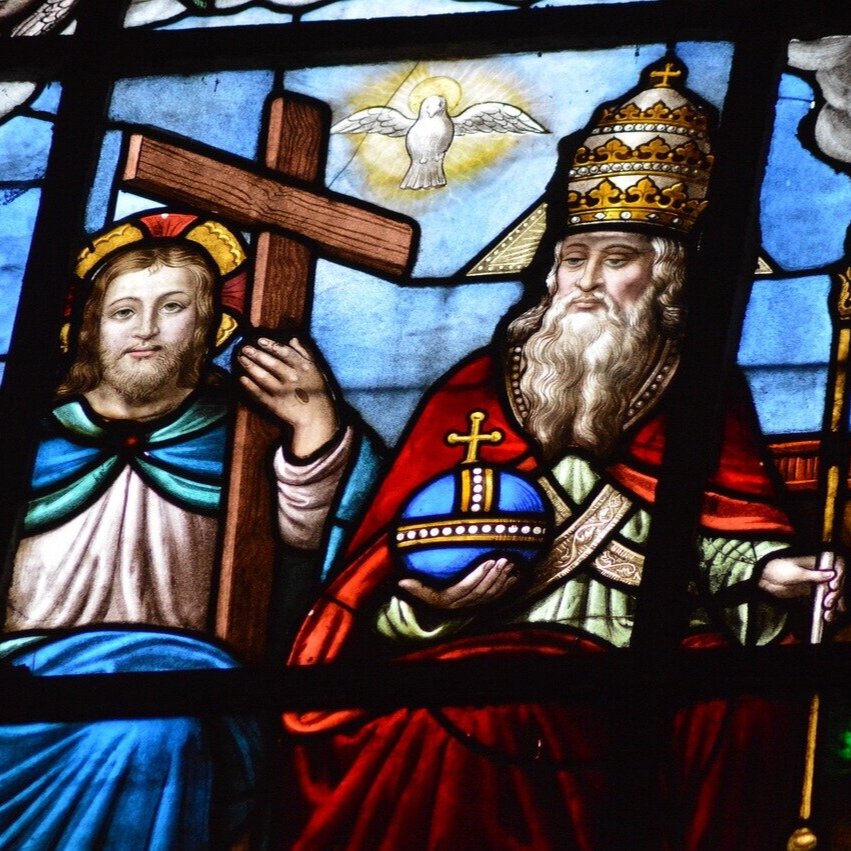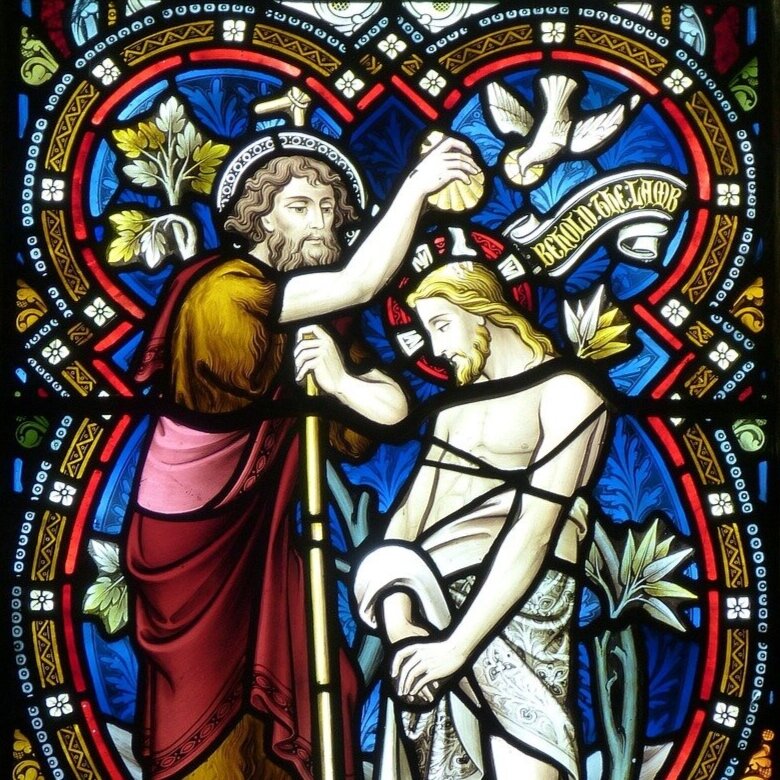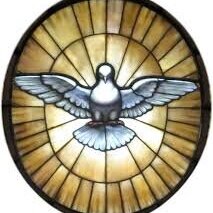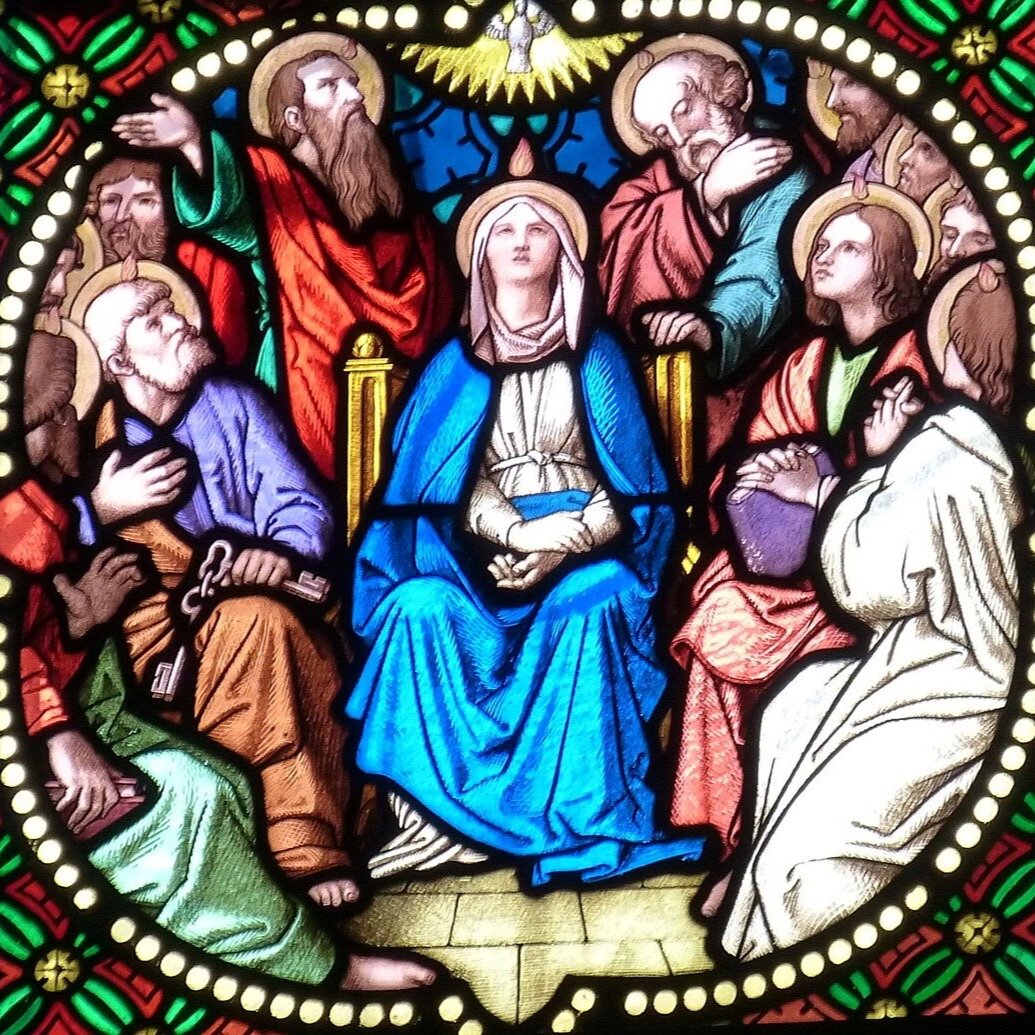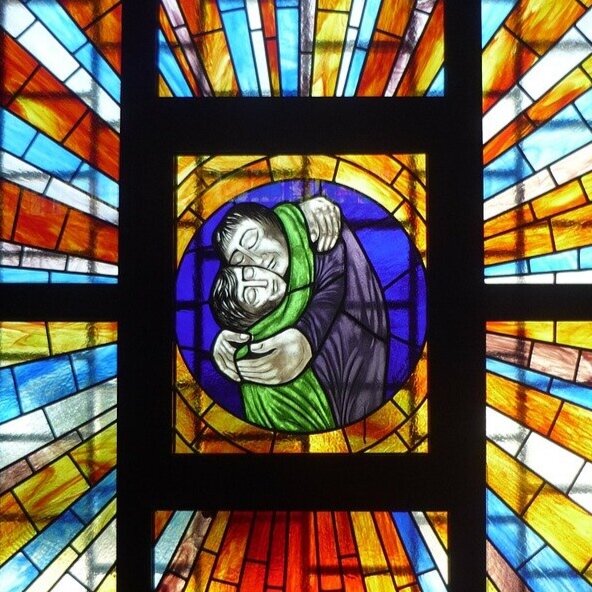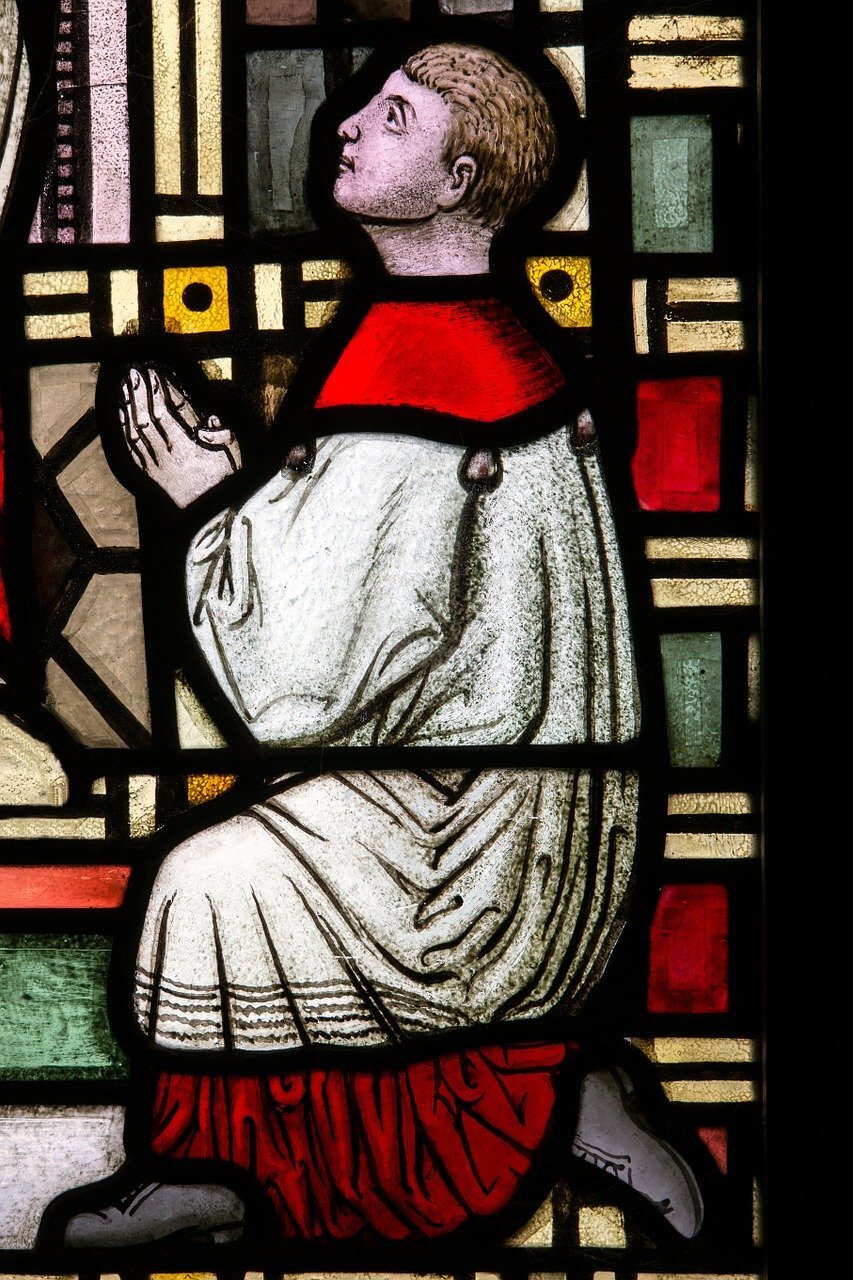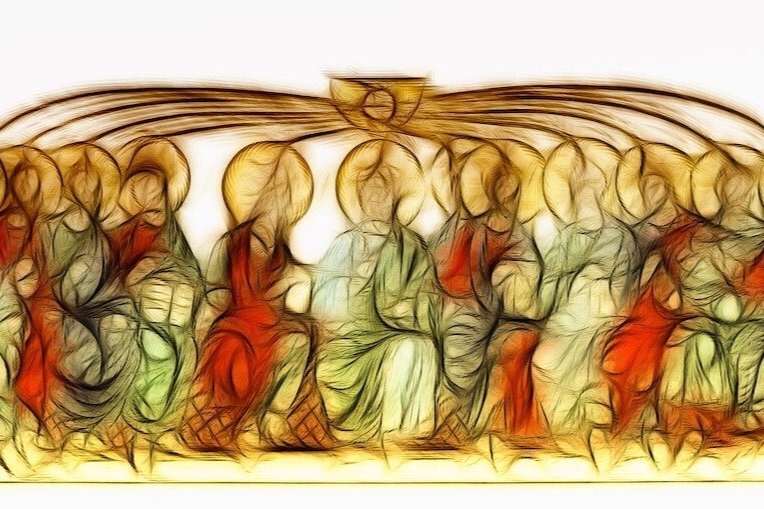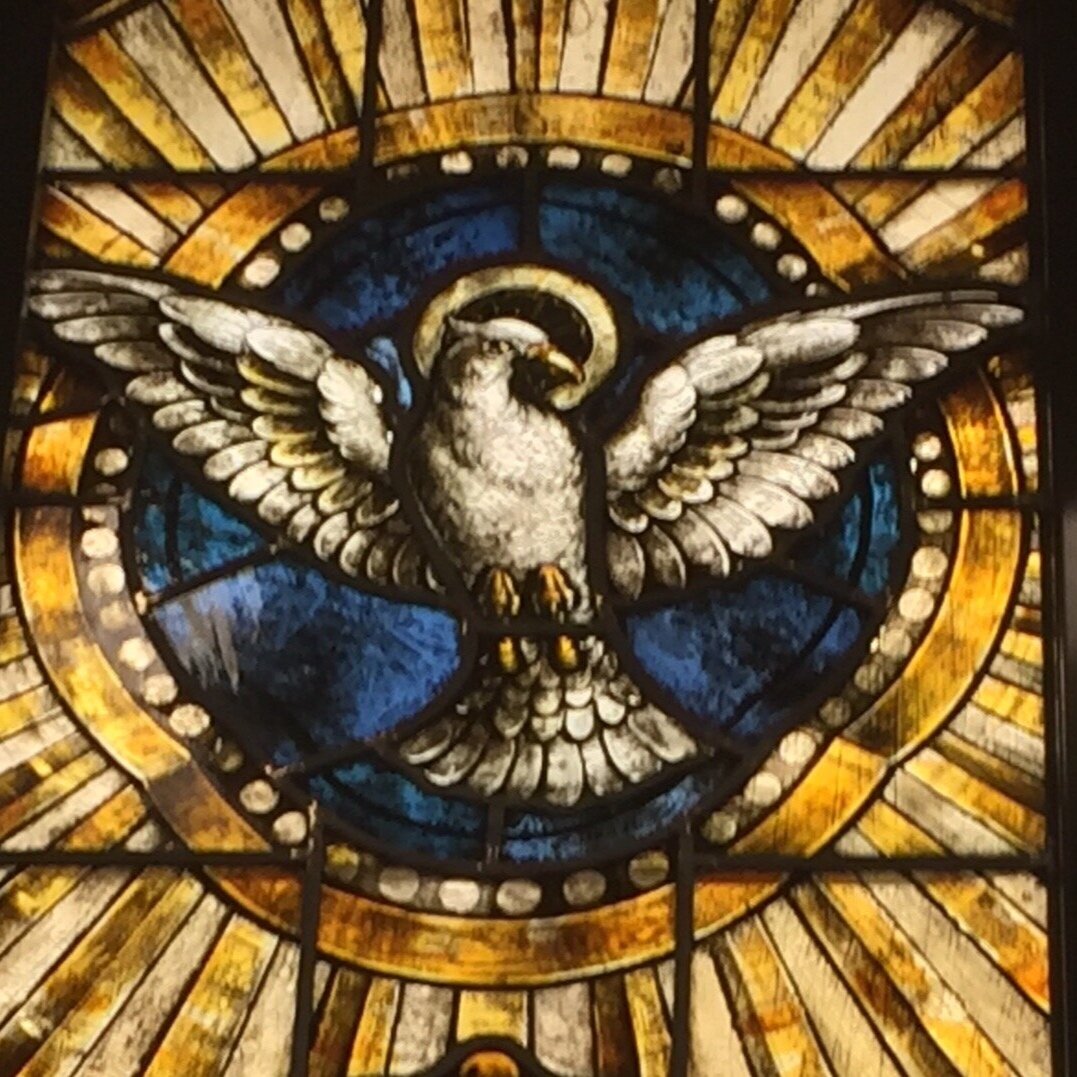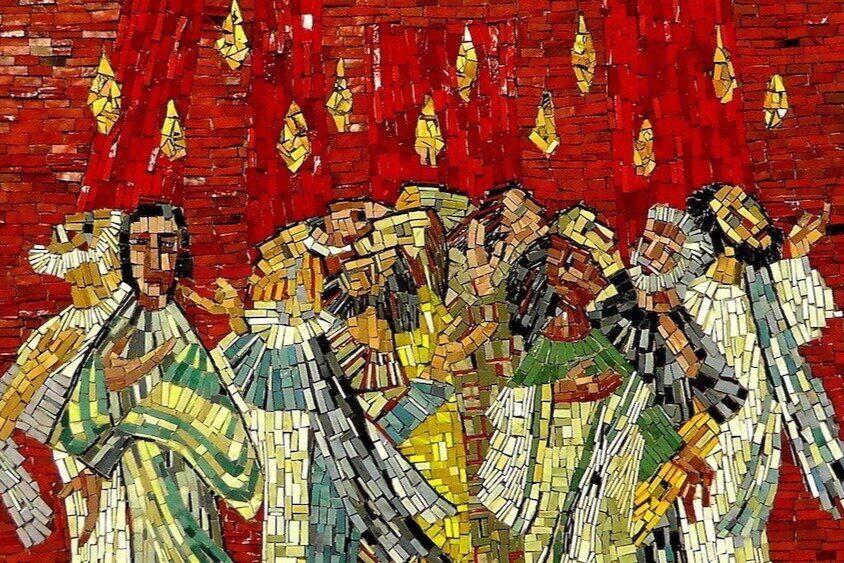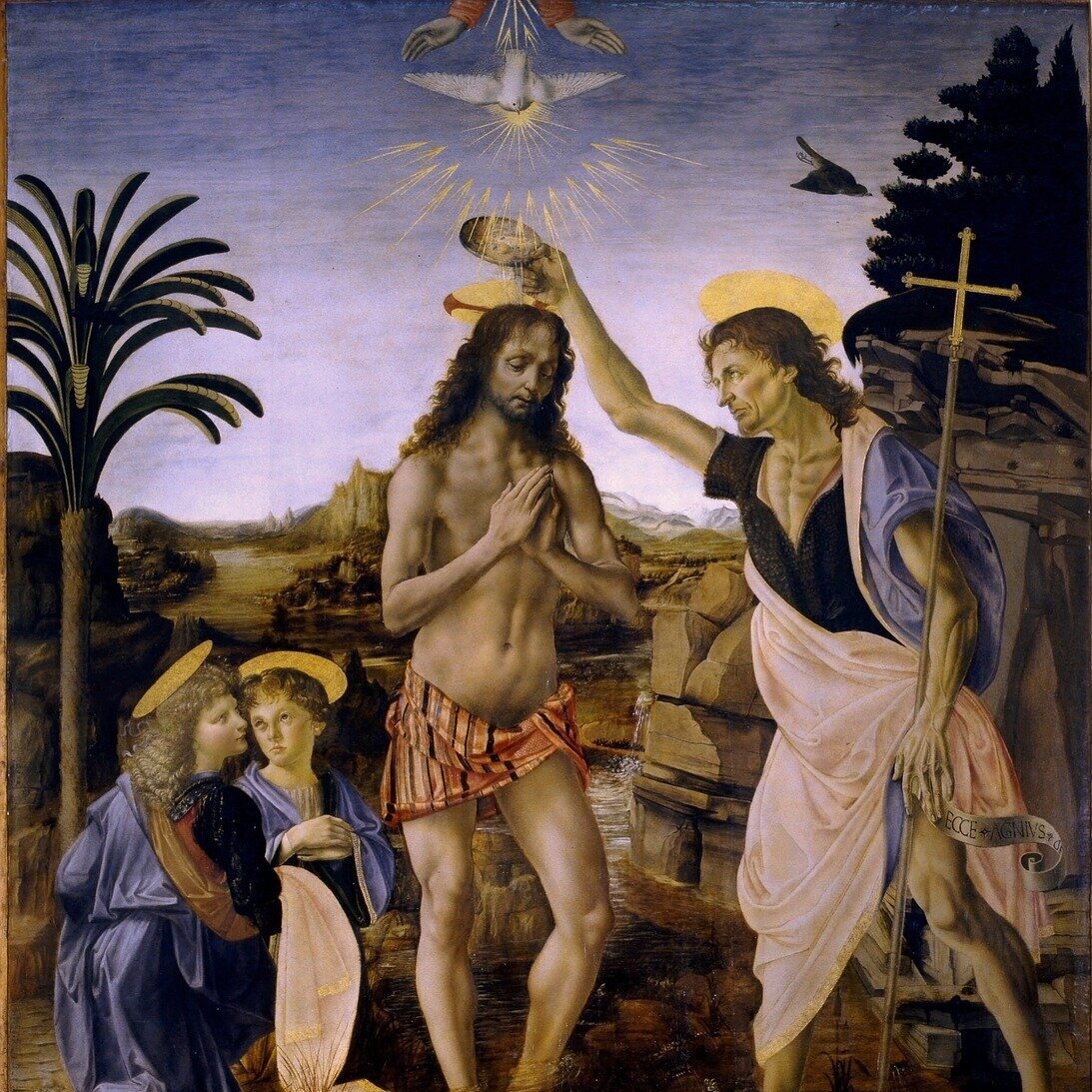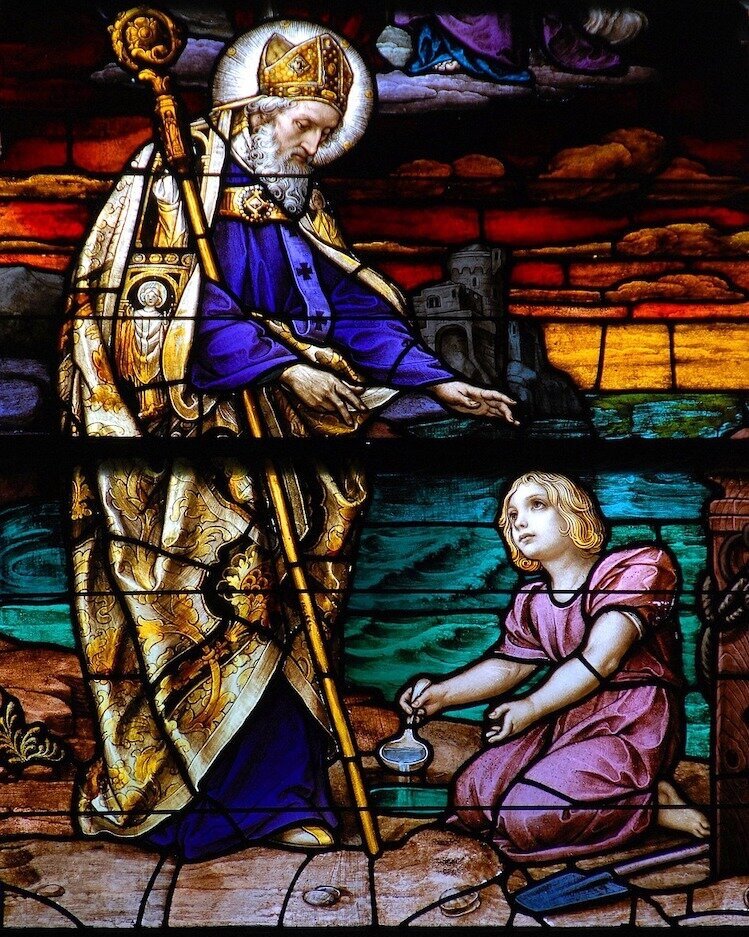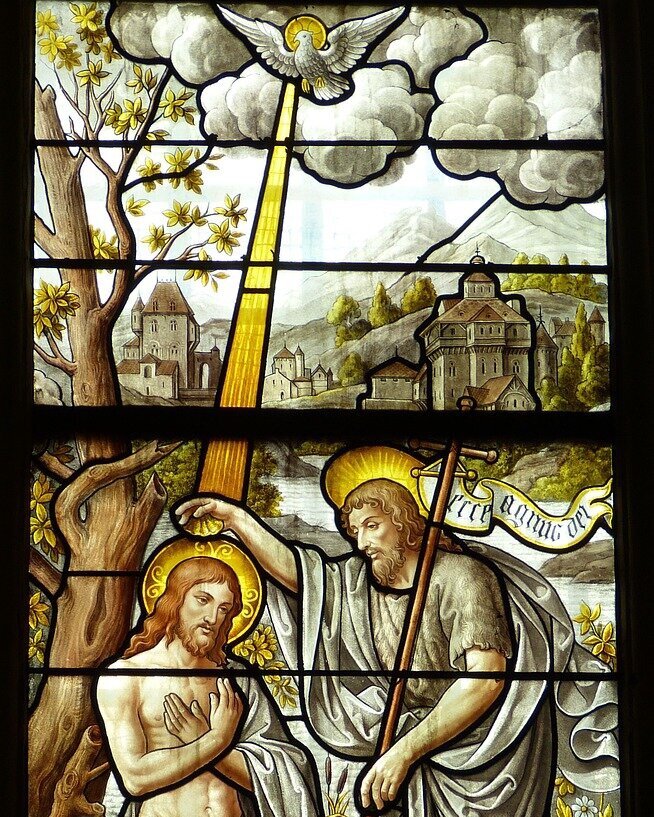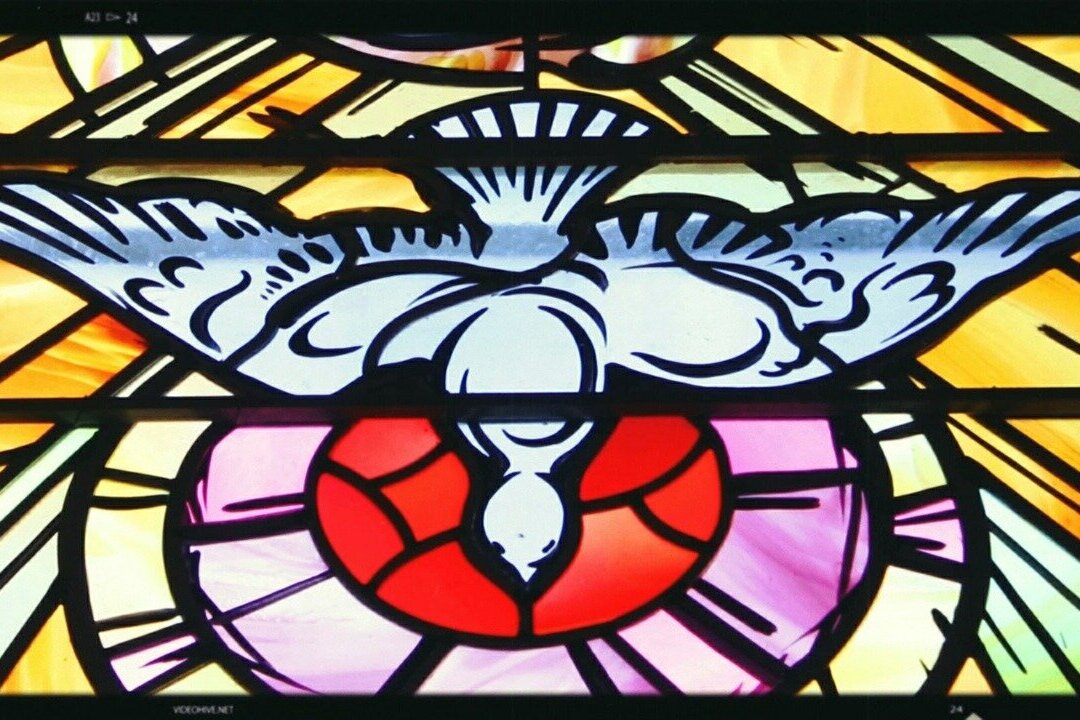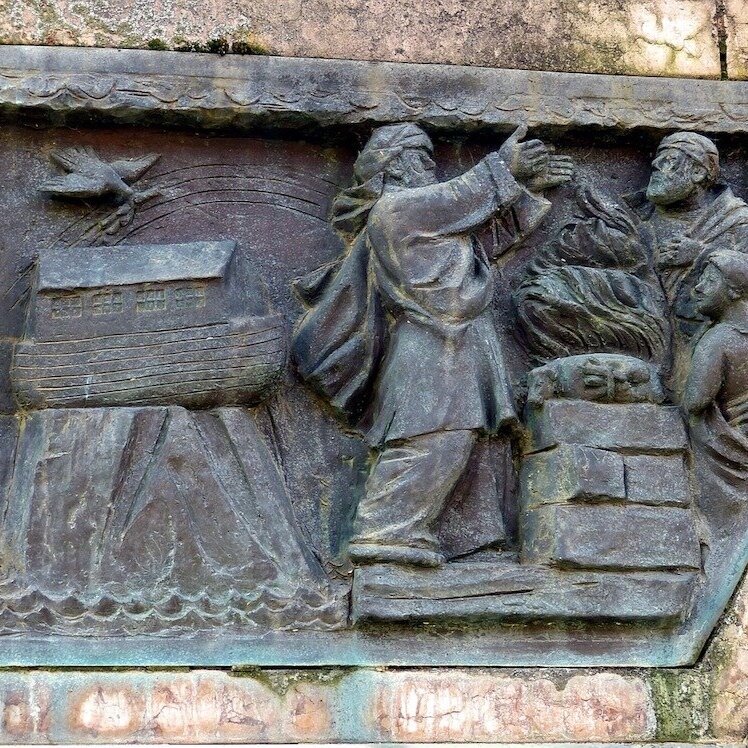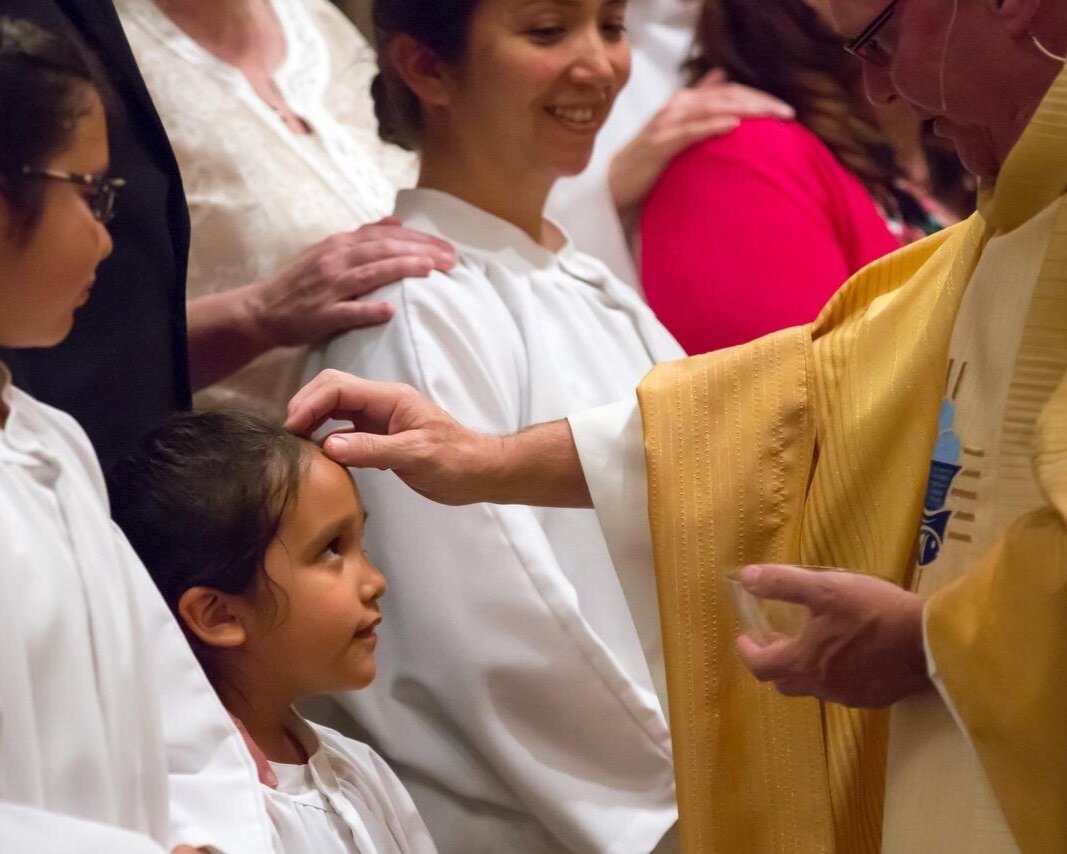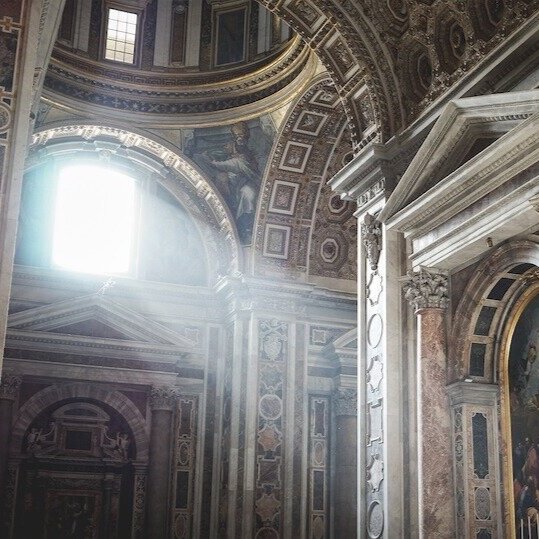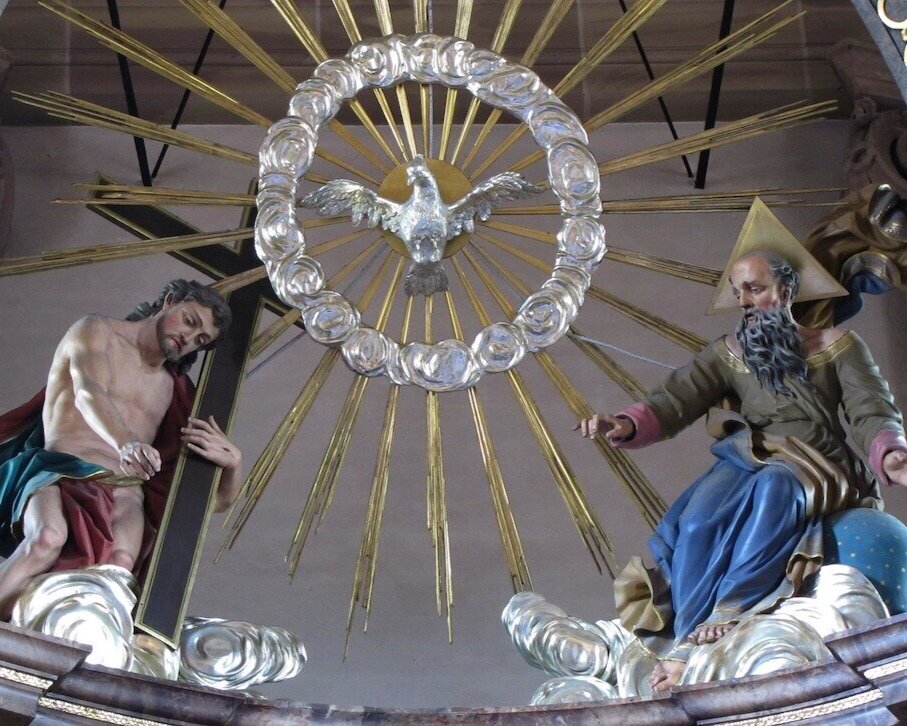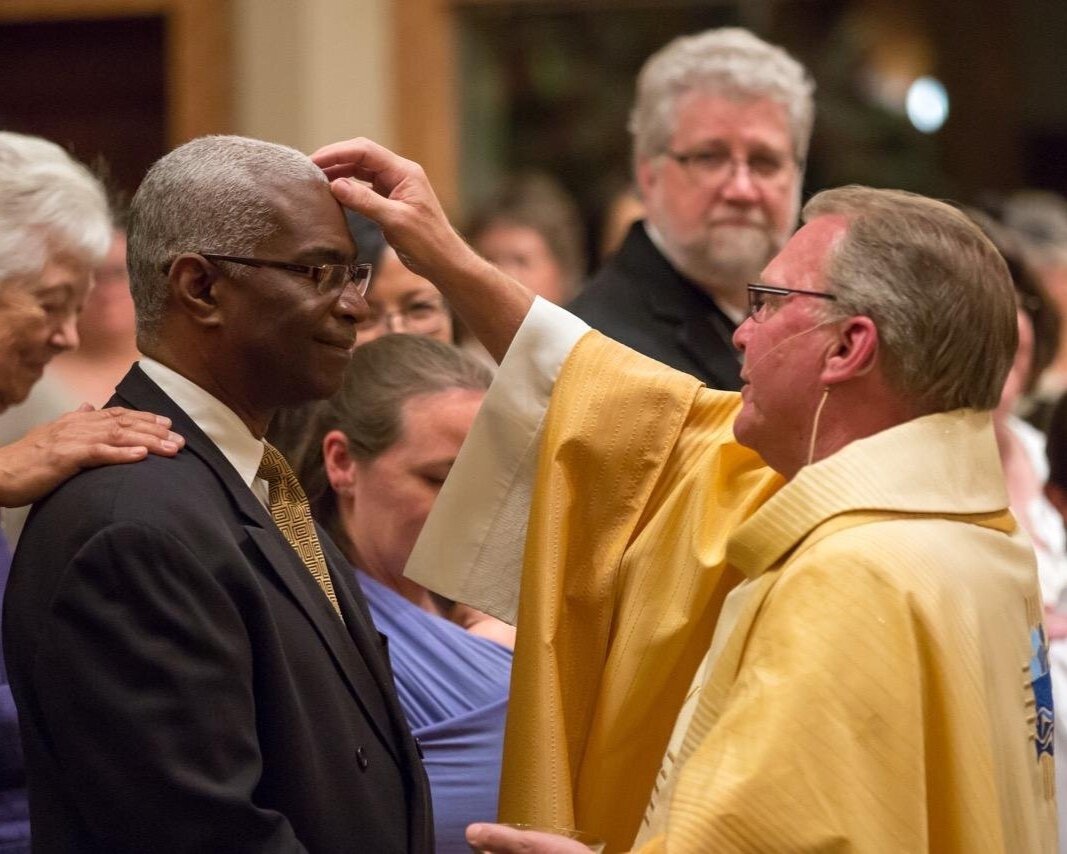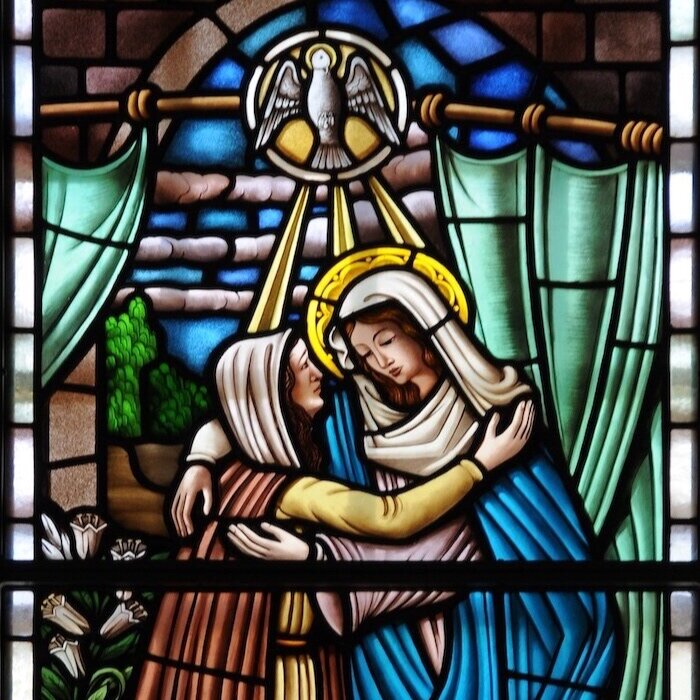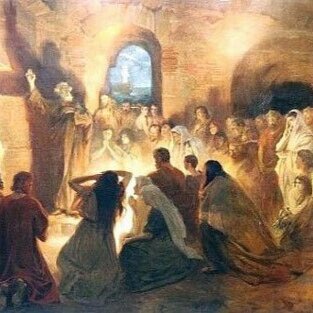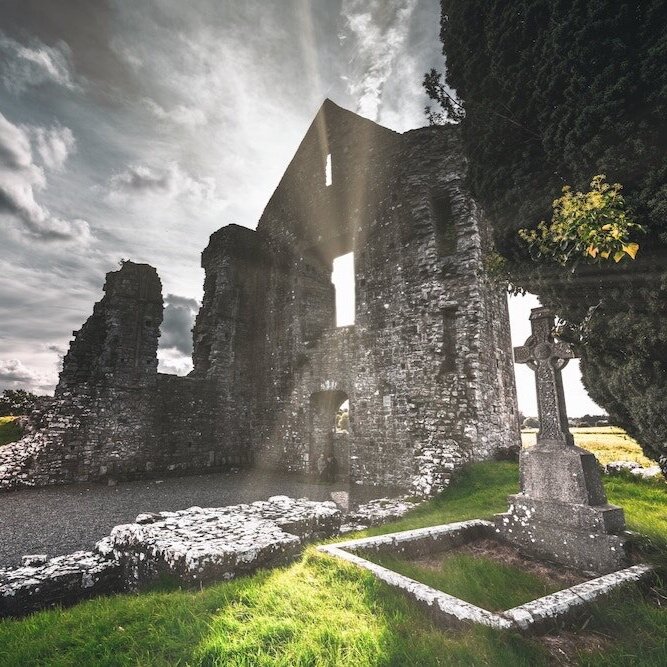Prayer to the Holy Spirit
Come Holy Spirit, fill the hearts of your faithful and kindle in them the fire of your love. Send forth your Spirit and they shall be created. And you shall renew the face of the earth.
O, God, who by the light of the Holy Spirit, did instruct the hearts of the faithful, grant that by the same Holy Spirit we may be truly wise and ever enjoy His consolations, Through Christ Our Lord, Amen.
Topics
Click on the image of the topic you wish to explore or just scroll down to view the entire page.
The Holy Trinity
Unlike other monotheist religions, Christianity is based on a Trinitarian God, one God with three persons, referred to as the Holy Trinity. Jesus declares the existence of the Holy Trinity to his apostles in the Gospels:
Go, therefore, and make disciples of all nations, baptizing them in the name of the Father, and of the Son, and of the Holy Spirit… [Mt 28:19, NRSVCE]
The concept of one God with three parts is a mystery of the Catholic faith that can be challenging to grasp. The difficulty of understanding the mystery of the Holy Trinity is perhaps best illustrated in a story about St. Augustine, who spent over 30 years writing a treatise on the Holy Trinity called De Trinitate. The tale as told by Jacobus De Voragine, the Archbishop of Genoa, begins with St. Augustine walking by the seashore in North Africa while contemplating the Holy Trinity.
“He found a little child on the beach who had made a small pit in the sand, and in his hand carried a seashell that he used as a little spoon. With the shell in his hand, he ran to the water and scooped out a spoonful of seawater. Then, he went back and poured it into his pit. And when St. Augustine beheld the child, he marveled and demanded to know what he was doing. The boy answered, “I am bringing all the water from the sea and pouring it into this pit.”
“What?” said St. Augustine, “It is impossible! How may it be done, since the sea is so great and large, and your pit and spoon are so small?”
“Yes, this is true,” said the little boy, “But, it would be faster and easier to move all the water from the great sea and pour it into this little pit then for you to grasp the mystery of the Trinity and His Divinity, for this mystery is greater and larger compared to your wit and intellect than the sea is compared to my little pit.” Then the child, who perhaps was an angel sent by God or the Christ Child himself, vanished leaving St. Augustine alone on the seashore with his thoughts.
— The Golden Legend by Jacobus De Voragine (1275 AD)”
According to the Catholic Church, the Holy Trinity is a mystery that arises from the love connecting the Father, the Son, and the Holy Spirit. A simplified understanding is that God the Father is the lover who created his beloved Son, Jesus, in the perfect image of himself who in turn loves him perfectly. The love that passes from Father to Son and from Son to Father, continually, reciprocally, and without reservation, is called the Holy Spirit, the third person of the Holy Trinity. Thus, the Holy Trinity is the union of the Lover, the Beloved, and the Love that bonds them together, one entity with three parts.
The grace of the Lord Jesus Christ, the love of God, and the communion of the Holy Spirit be with all of you. [2Cor 13:13, NRSVCE]
The Holy Spirit
The Latin word “spiritus” means breath. Using this reference, The Blessed Archbishop Fulton Sheen wrote in The Divine Romance (1930) about the love between God the Father and Jesus:
Love at such a stage does not speak; does not cry; does not express itself by words, nor by canticles; it expresses itself as we do in some ineffable moments, by that which indicates the very exhaustion of our giving — namely, a sigh, or a breath. And that is why the Third Person of the Blessed Trinity is called the Holy Spirit or the Holy Ghost.
God created man to know him, love him, and serve him in this life, and then be eternally united with him in the next life. The path of every human life starts with God and is meant to end with him in heaven. Each believer’s salvation journey is unique, but all start through their belief in Jesus Christ as the Son of God and continue with the guidance of the Holy Spirit, who is a gift of love sent by the Father to those who seek him:
"So I say to you, Ask, and it will be given you; search, and you will find; knock, and the door will be opened for you. For everyone who asks receives, and everyone who searches finds, and for everyone who knocks, the door will be opened. ... If you then, who are evil, know how to give good gifts to your children, how much more will the heavenly Father give the Holy Spirit to those who ask him!” [Lk 11:9,10,13, NRSVCE]
Indeed as an equal part of the Holy Trinity, the Holy Spirit is a divine and powerful person. He has been present throughout salvation history from Genesis to Revelation, and still with us today. He has spoken God’s words through the prophets of the Old Testament and communicated with the Apostles. Present in the sacraments and liturgy of the Church, the Holy Spirit also protects the content of the faith from generation to generation. He provides us with the gifts, grace, and “whole armor of God” necessary to help us fight sin and temptation while protecting us from evil:
Finally, be strong in the Lord and in the strength of his power. Put on the whole armor of God, so that you may be able to stand against the wiles of the devil. For our struggle is not against enemies of blood and flesh, but against the rulers, against the authorities, against the cosmic powers of this present darkness, against the spiritual forces of evil in the heavenly places. Therefore take up the whole armor of God, so that you may be able to withstand on that evil day, and having done everything, to stand firm. Stand therefore, and fasten the belt of truth around your waist, and put on the breastplate of righteousness. As shoes for your feet put on whatever will make you ready to proclaim the gospel of peace. With all of these, take the shield of faith, with which you will be able to quench all the flaming arrows of the evil one. Take the helmet of salvation, and the sword of the Spirit, which is the word of God. [Eph 6:10-17, NRSVCE]
It is also important to remember that the Holy Spirit is a powerful intercessor and prayer partner who knows what you need even when you cannot articulate it.
Likewise the Spirit helps us in our weakness; for we do not know how to pray as we ought, but that very Spirit intercedes with sighs too deep for words. And God, who searches the heart, knows what is the mind of the Spirit, because the Spirit intercedes for the saints according to the will of God. [Rom 8:26-27, NRSVCE]
A guiding light on the path to salvation, the Holy Spirit stays with us always even when we stray from the path.
Symbols of the Holy Spirit
Of the three divine persons in the Holy Trinity, the most mysterious and difficult one for us to imagine is the Holy Spirit. From the Old Testament, we can picture God the Father as a powerful and all-knowing but merciful and kind father figure trying to guide his wayward children. From the Gospels, we read the accounts of a charismatic Jesus in Israel preaching and healing. Furthermore, we have many artistic masterpieces depicting both Jesus and the Father, so it is not difficult to bring an image of either to our minds. However, when it comes to the Holy Spirit, it is difficult to formulate an image because he does not assume bodily form. The Bible gives us a number of symbols that are used to signify the presence of the Holy Spirit to man [CCC 694-701]. Click on images for more information.
The Holy Spirit in Scripture
As the mysterious and abiding presence of God, the Holy Spirit exists in both the Old and New Testaments, however, in seemingly different roles. Less is understood about the workings of the Holy Spirit in the Old Testament since the Holy Trinity is not revealed until the New Testament. Often referred to as the Spirit of God in the Old Testament, the Holy Spirit appears to be active when God the Father interacts with man on earth or when he selects individuals for specific tasks. For example, whenever a Prophet states, “thus, says the Lord” his divine authority and instruction is recognized.
The holy spirit in the old testament
Samples of Old Testament verses that infer the presence of the Holy Spirit are linked below. Please click on the picture captions to view.
The holy spirit in the new testament
In the New Testament, the Holy Trinity is revealed [CCC 233] and thus, the Holy Spirit as an equal part of God; furthermore, his mission with Jesus on earth is clarified. For as stated in The Catechism of the Catholic Church,
“When the Father sends his Word, he always sends his breath.” [CCC 689]
the synoptic gospels
In the Synoptic Gospels, the participation of the Holy Spirit is revealed in the steps leading up to Jesus’ ministry. The Holy Spirit was active in the lives of:
the gospel of John
The Holy Spirit is revealed in magnificent style at the baptism and temptation of Jesus. From that point on the Holy Spirit becomes active in the ministry of Jesus. In the Gospel of John, Jesus announced the coming of the Holy Spirit as the Advocate who will come to aid the Apostles after he leaves the earth. Samples of verses of the Gospels that show the Holy Spirit’s importance in events of the ministry of Jesus are linked below.
The Acts of the Apostles
Ultimately, in the Acts of the Apostles, the Holy Spirit is revealed to the Apostles in full glory to support the mission given to them by Jesus. Samples of verses from Acts that show the importance of the Holy Spirit are linked below.
These are just a few examples of the Holy Spirit in Scripture. The more you read the Bible the more you will discover.
The Mission of the Holy Spirit in the Church
God the Father sent his Son, the Word made flesh, accompanied by the Holy Spirit to live among men and speak the truth of God. Through his words, deeds, signs, and miracles, Jesus fulfilled the Messianic prophecy of the Old Testament and gathered disciples. God established a new covenant with man through the crucifixion of Jesus for the redemption of mankind’s sins that we might have eternal communion with God. Through his resurrection, Jesus showed that death could be conquered through our faith in God.
On Pentecost, the Holy Spirit was sent to the Apostles and their followers to guide them as founders of the Church, the Body of Christ. The Apostles infused with the Holy Spirit traveled the earth preaching the Gospel and all they had learned from Christ while converting and baptizing multitudes into the Faith. From their teachings and work and with the assistance of the Holy Spirit, the Church was established and sustained. The Holy Spirit, the ongoing presence of Jesus on earth, is active in the Church past, present, and future. Christ is the Head of his Church, believers are members of the Body of Christ, and the Holy Spirit is its Soul.
Catholicism is a religion of the Word of God. As Jesus told his Apostles:
But the Advocate, the Holy Spirit, whom the Father will send in my name, will teach you everything, and remind you of all that I have said to you. [Jn 14:26, NRSVCE]
All the knowledge given by the Holy Spirit to the Apostles and the Old Testament Prophets is called Divine Revelation. The Catholic Church recognizes two forms of Divine Revelation: Sacred Scripture and Apostolic Tradition. Both of these represent depositories of the Word of God and according to Pope Paul VI in his Dogmatic Constitution on Divine Revelation, Dei Verbum:
Hence there exists a close connection and communication between sacred tradition and Sacred Scripture. For both of them, flowing from the same divine wellspring, in a certain way merge into a unity and tend toward the same end. For Sacred Scripture is the word of God inasmuch as it is consigned to writing under the inspiration of the divine Spirit, while sacred tradition takes the word of God entrusted by Christ the Lord and the Holy Spirit to the Apostles, and hands it on to their successors in its full purity, so that led by the light of the Spirit of truth, they may in proclaiming it preserve this word of God faithfully, explain it, and make it more widely known. Consequently it is not from Sacred Scripture alone that the Church draws her certainty about everything which has been revealed. Therefore both sacred tradition and Sacred Scripture are to be accepted and venerated with the same sense of loyalty and reverence. [DV 9]
With the inspiration of the Holy Spirit, the Apostles and their disciples put the good news of Jesus Christ and his message of salvation into the writings we call the New Testament – the Gospels and the Epistles. Similarly, the Old Testament consists of writings of the Prophets that transmit the word of God as inspired by the Holy Spirit. Together they make up the Sacred Scripture of the Christian Faith. However, before the New Testament was written, the Apostles and their followers spread the Word using only their personal experience with Jesus. Apostolic Tradition refers to the transmission of the word of God entrusted by Christ and the Holy Spirit to the Apostles through preaching, bearing witness, institutions, worship, and inspired writings.
The importance of Apostolic Tradition is presented in Sacred Scripture. For example, St. Paul points to the faithful’s reliance on both scripture and tradition stating,
So then, brothers and sisters, stand firm and hold fast to the traditions that you were taught by us, either by word of mouth or by our letter. [2 Thes 2:15, NRSVCE]
While St. John concludes his Gospel by alluding to the abundance of divine activity witnessed by the followers of Jesus:
But there are also many other things that Jesus did; if every one of them were written down, I suppose that the world itself could not contain the books that would be written. [Jn 21:25, NRSVCE]
The Holy Spirit protects the integrity of the Word of God transmitted through both Sacred Scripture and Apostolic Tradition from generation to generation. This is accomplished through the Magisterium of the Catholic Church. The Magisterium is the teaching authority of the Church and relies on the assistance of the Holy Spirit to ensure the authentic interpretation of the word of God. The Magisterium, Sacred Scripture, and Apostolic Tradition are linked together under the direction of the Holy Spirit to effect God’s mission, the salvation of souls, by giving the complete message of God.
The Holy Spirit is also active in the Church in many other ways. He puts us into communion with Christ through the sacraments and liturgy, intercedes for us in our prayers, and works with us through the witness of the saints. Furthermore, the Holy Spirit inspires many toward missionary work and discernment of the priesthood, and builds up the Church through its ministries and charisms. The Holy Spirit guided the Apostles and early Church Fathers in the beginning of the Catholic Church, and he continues to inspire and guard the Church today.

